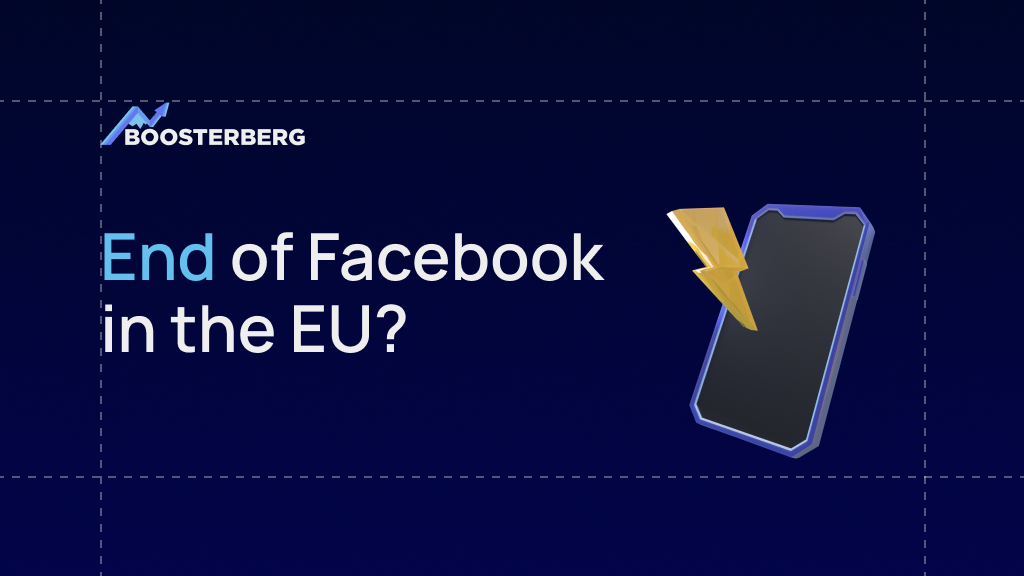We decided to write more about the popular myth spreading across social media, to answer a popular question of some of our clients. In short – Zuckerberg doesn’t make billions by playing the insulted kid, so he wouldn’t let that happen.
In recent days, the news has swept through the media that Mark Zuckerberg’s popular Meta services – Facebook, Messenger, Instagram and WhatsApp – could soon come to an end in the European Union. This is said to be assuming that a legal framework cannot be agreed under which Meta will be able to transfer and process data of EU citizens overseas.
Can you imagine that? Over 400 million Europeans wouldn’t be able to argue on Facebook or message each other on Messenger. That would sure be a huge tragedy. So much so that, fortunately, we don’t have to worry about this forced detox at all…
How did it all started?
Meta, the parent company of social networking sites Facebook and Instagram, has been reporting its 2021 financial results in recent days. As part of that, the annual report is required to file with the local SEC (Securities and Exchange Commission) as a publicly-traded company has received a lot of attention.
In the introductory section of the report, where the company describes its business and the various factors that affect it, someone mentioned legislative problems with the transfer of Europeans’ personal data to the US. The firm specifically states that if these complications cannot be resolved, such as the upcoming new legislation being worked on from summer 2020,
“We will likely not be able to offer a number of our most important products and services in Europe, including Facebook and Instagram”.
The end of Facebook in Europe? What a tempting headline… It didn’t take long for the news to spread across virtually the entire media spectrum. However, in reality, it is merely describing hypothetical scenarios that investors need to be informed about. The mention in question in no way represents the company’s intention to leave the European market, something that Meta itself has distanced from such speculation here.
Why don’t we have to worry about that?
Meta refers in particular to the situation surrounding the transatlantic agreement called Privacy Shield, under which it could send users’ data overseas and process it there. However, in the summer of 2020, the agreement was declared insufficient by the EU Court of Justice, which said it did not adequately protect the privacy of Europeans.
Since then, a new agreement has been in the works, and this is something that Meta is eagerly awaiting. But what if the wording of the agreement does not fully suit the functioning of Facebook or Instagram, can Meta “withdraw them from the European market” after all? The short answer is no. Every company, large and small, that handles Europeans’ data would have to adapt to any major changes. And if anyone has the resources, knowledge and capital to overcome such an obstacle, it is Mark Zuckerberg. There’s no reason why Meta can’t do just that.
First of all, it wouldn’t even make economic sense for the company. However much it might be affected financially by any negative changes, Europe will remain too big a market for it, or too big a prospect for it to make money.
Facebook is an important tool for political struggle, and many elected representatives have built their careers on it. It will therefore also be in their interest to ensure that the social network has conditions that are suitable for them.
Facebook alone is used by 427 million Europeans per month. By comparison, in the US and Canada, the social network has ‘only’ 262 million users.
That’s simply too big a piece of the pie for Mark Zuckerberg to give up voluntarily. Yet he did not build the tech giant by backing out of investment opportunities at the first sign of trouble.
Summary
While Facebook still serves its primary purpose of bringing people and entire communities together, it is also a tool for systematically spreading hate and fake news. As the common saying goes, we can say that Facebook is a good servant, but a bad master.
We will see what impact the media scandal will have on the creation of a new transatlantic agreement. European legislators should not see it as pressure and should concentrate on ensuring that the resulting document includes the necessary guarantees for European users.
